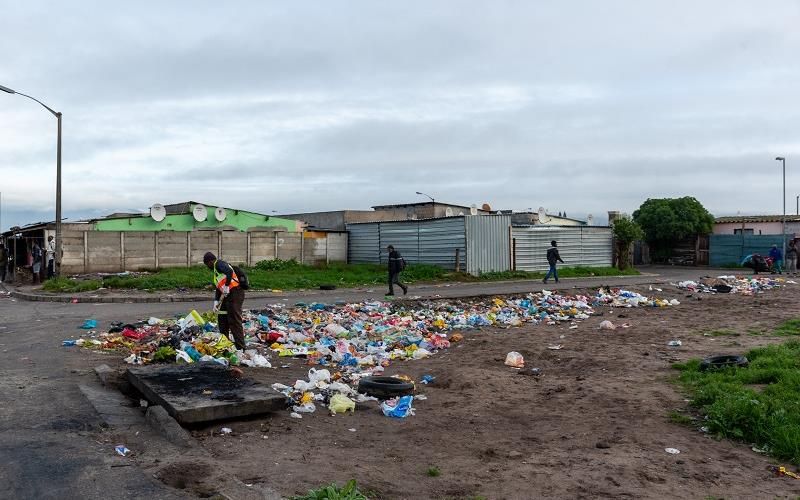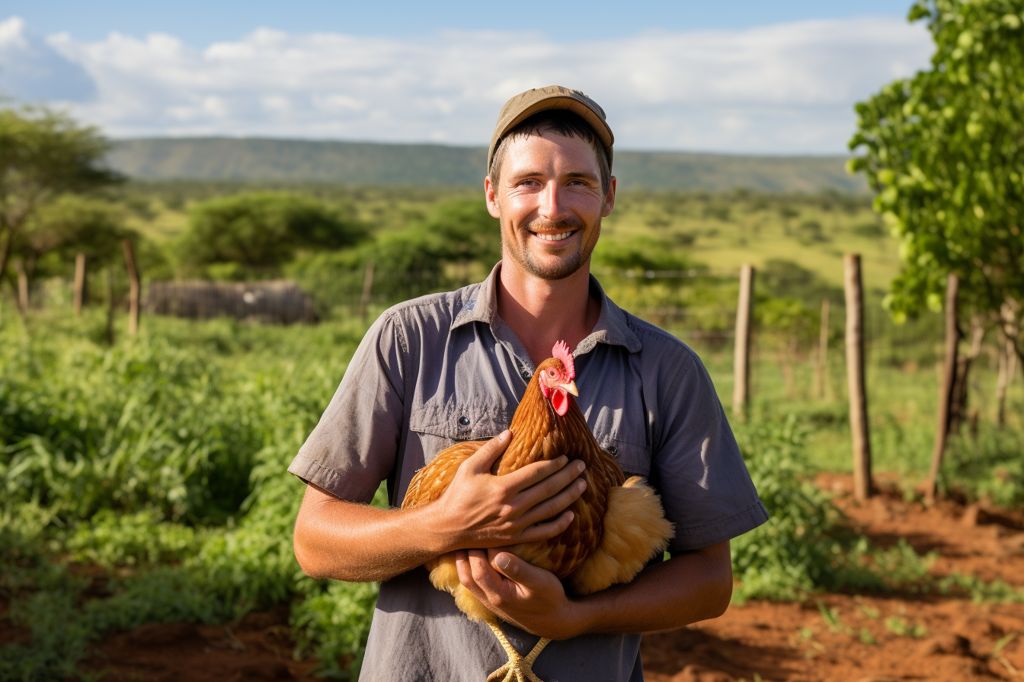Cape Town is cracking down on littering and illegal dumping with the Urban Waste Management By-law Enforcement Unit issuing fines and carrying out surveys and operations across the city. In the past three months, they have handed out over 900 fines for littering and dumping, showing a significant increase in enforcement efforts. Community involvement and reporting are also essential in preserving the city’s environment, with a new campaign providing cash rewards for information leading to convictions for illegal dumping. Cape Town’s initiatives to become a cleaner, greener city can serve as inspiration for other urban spaces around the world.
Cape Town, a city celebrated for its breathtaking landscapes and rich history, has been grappling with the escalating issue of littering and unlawful dumping. To address this urgent matter, the City of Cape Town’s Urban Waste Management (UWM) By-law Enforcement Unit has been actively working to deter and correct the individuals responsible for posing environmental health risks.
Escalating Enforcement Efforts Yield Positive Results
The UWM By-law Enforcement Unit’s efforts have led to promising outcomes, with a noticeable increase in the number of fines issued for illegal dumping and littering. In the past three months, they handed out 580 fines for unlawful dumping, totaling R1,615,100, and 353 fines for littering, amounting to R176,000.
In the year 2022/23, a total of 1,723 fines were distributed for littering and dumping, averaging roughly 144 fines per month. However, the first quarter of 2023/24 witnessed a striking surge of 115%, with 933 fines handed out, equivalent to 311 fines each month.
In addition to monitoring fines, the UWM By-law Enforcement Unit carried out surveys of businesses in the Bellville and Fisantekraal regions to guarantee that suitable waste management systems were implemented. Moreover, officers executed 17 operations in various Central Business Districts (CBDs) across the city, including Bellville, Kuils River, Kraaifontein, and Cape Town CBD.
The Importance of Community Involvement and Reporting
Alderman Grant Twigg, Mayoral Committee Member for Urban Waste Management, underscored the significance of apprehending and penalizing litterers and illegal dumpers to preserve the city’s environment. He also recognized the enhancement of strategies and capacity to enforce the law.
Although the number of fines has risen, reports of littering and dumping from the public remain stagnant. Twigg took the opportunity to remind residents about the ongoing #SpringCleanCT campaign, which provides cash rewards for information leading to convictions for illegal dumping. Community collaboration and engagement are crucial in transforming the city into a space that everyone can take pride in.
To report illegal dumping, residents can call the 24-hour toll-free number (0800 110077). The City of Cape Town additionally encourages residents and small businesses to utilize the city’s network of drop-off sites to dispose of up to three 1.5-tonne loads of waste daily.
A Cleaner, Greener Future for Cape Town
The UWM By-law Enforcement Unit’s crackdown on littering and unlawful dumping is a significant stride towards ensuring Cape Town remains an attractive and eco-friendly city. By tackling this issue head-on, the city is progressing towards becoming a cleaner, greener urban space for both residents and visitors to relish.
As a global city acclaimed for its natural beauty, Cape Town’s initiatives to preserve its environment are essential. The endeavors of the UWM By-law Enforcement Unit, along with the active participation of residents, will certainly leave a lasting impact on the city’s sustainability. Continued emphasis on implementing and enforcing waste management laws will help protect Cape Town’s status as a vibrant and environmentally responsible city.
Collective Responsibility and Inspiration for Other Cities
The heightened enforcement of littering and dumping laws, coupled with community involvement, demonstrates the shared responsibility we all have in safeguarding and preserving our environment. Cape Town’s achievements in combating this issue can serve as a beacon of inspiration for other cities facing similar challenges. With the persistent dedication of authorities and citizens alike, we can ensure that our urban spaces remain unblemished and are treasured by future generations.
1. What is Cape Town doing to address the issue of littering and illegal dumping?
The City of Cape Town’s Urban Waste Management (UWM) By-law Enforcement Unit is issuing fines and carrying out surveys and operations across the city to crack down on littering and illegal dumping.
2. How many fines have been issued for littering and dumping in the past three months?
In the past three months, the UWM By-law Enforcement Unit has handed out over 900 fines for littering and dumping, with 580 fines for unlawful dumping, totaling R1,615,100, and 353 fines for littering, amounting to R176,000.
3. Has there been an increase in enforcement efforts to combat this issue?
Yes, there has been a noticeable increase in the number of fines issued for illegal dumping and littering. In the first quarter of 2023/24, there was a surge of 115%, with 933 fines handed out, equivalent to 311 fines each month.
4. What regions in Cape Town have undergone surveys of business waste management systems?
The UWM By-law Enforcement Unit carried out surveys of businesses in the Bellville and Fisantekraal regions to ensure that suitable waste management systems were implemented.
5. How can the public report illegal dumping?
Residents can call the 24-hour toll-free number (0800 110077) to report illegal dumping.
6. What is the #SpringCleanCT campaign?
The ongoing #SpringCleanCT campaign provides cash rewards for information leading to convictions for illegal dumping.
7. How can residents dispose of waste in Cape Town?
The City of Cape Town encourages residents and small businesses to utilize the city’s network of drop-off sites to dispose of up to three 1.5-tonne loads of waste daily.
8. What is the significance of Cape Town’s initiatives to preserve its environment?
As a global city acclaimed for its natural beauty, Cape Town’s initiatives to preserve its environment are essential. The persistence of the UWM By-law Enforcement Unit and community involvement will leave a lasting impact on the city’s sustainability and serve as inspiration for other cities facing similar challenges.








